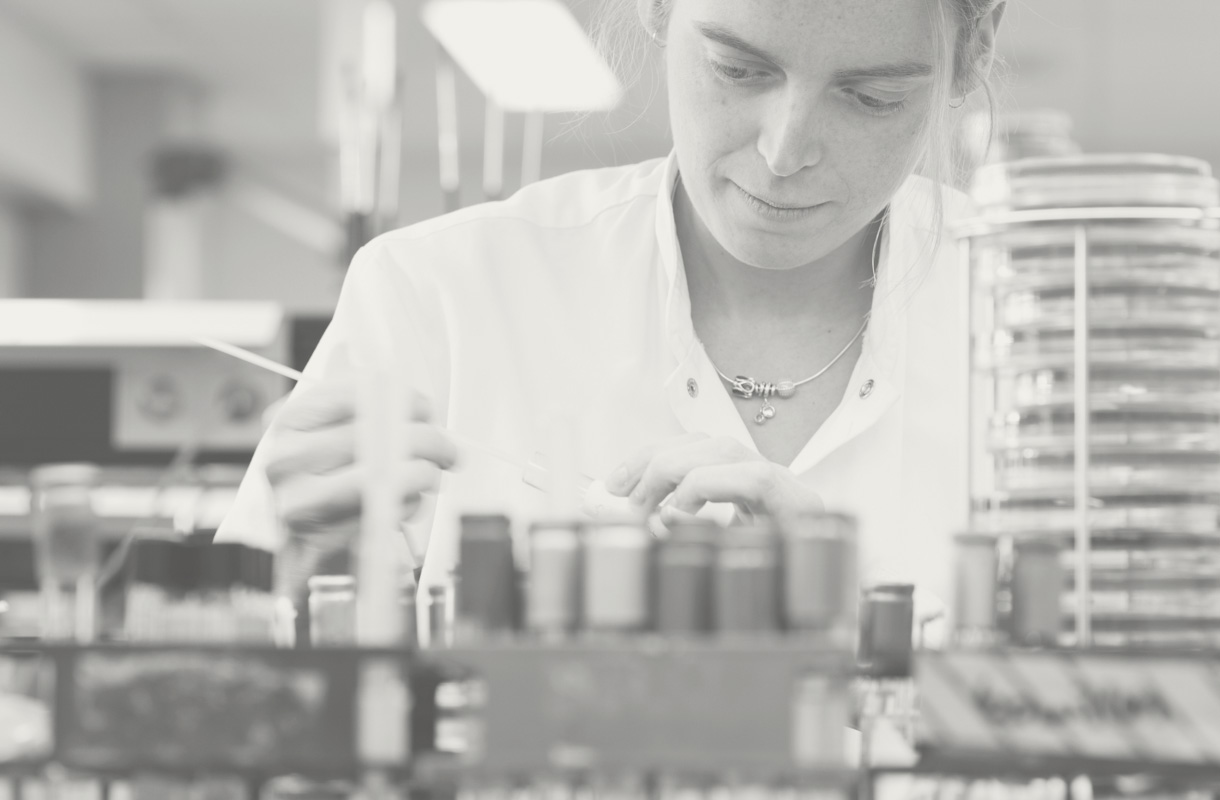STEM CELL DONORS A LIKELY COHORT FOR FAMILIAL MALIGNANCIES
Are Some Stem Cell Donors a Likely Cohort for Familial Hemotologic Malignancies?
Is it possible that when a leukemia patient receives a stem cell transplant from a close relative, the patient might actually be reinforcing the likelihood that he or she will develop a secondary cancer? Lucy Godley, MD, PhD and past CRF Young Investigator is working to find out.
Some of Dr. Godley’s work is focused on blood malignancies that are passed down through generations of families. Called Familial Hematological Malignancies (FHMs), these diseases are considered pretty rare, although Godley feels that may just be because they are so often not recognized. She currently has a large grant proposal in front of the National Institutes of Health to create the North American Consortium of Familial Hematological Malignancies, intended to collect, describe and study FHMs and look for the genetic markers that indicate families with a predisposition to develop one of these diseases. One of the most devastating aspects of FHMs is that many of them exhibit “anticipation,” which means that each successive generation is predisposed to develop cancer earlier in life. In fact, grandchildren can develop disease before their grandparents. Lucy, and the group of scientists she has assembled, believe they may be able to locate the mechanism of
anticipation.
Another aspect of FHMs is that carriers exhibit unusual blood cell behavior. When a leukemia patient needs a stem cell transplant, a matched family member is considered the best donor. Occasionally, matched related donors do not react normally to stem cell stimulating drugs, indicating unusual blood behavior. Dr. Godley has teamed up with Dr. Jane Churpek (a 2012 CRF Young Investigator) to see if the behavior is correlated with the existence of a gene related to an FHM. If there are cases in which donors can unwittingly passing back the genes connected to the patient’s original disease, such a donor should not be used. If Godley and Churpek find a connection between genes linked to FHM and unusual donor blood behavior, then a new protocol will be suggested to perform FHM related genetic testing on donors to identify potential FHM patients, treat them preventatively and disallow them from donating their stem cells.
Having reviewed Dr. Godley’s complete NACFHM proposal, the CRF has agreed to commit to support the whole project with a grant of $150,000, if the NIH approves and funds her proposal. Nevertheless, in our view, the stem cell transplantation sub-study has such direct opportunity to change clinical practice that, after discussion with Dr. Godley, the CRF has agreed to fund the “Early Detection of Undiagnosed Familial MDS/Acute Leukemia Predisposition Syndrome Families in the Matched Related Donor Hematopoietic Stem Cell Transplant Setting” project as a pilot project, committing the first $75,000 of the CRF grant as immediately available We feel this is a great opportunity to potentially make a real difference in patient care and the CRF is very excited to see what Drs. Godley and Churpek discover.





